The Oxfordshire Town of Chipping Norton, infamous for its connections with former Prime Minister, David Cameron’s ‘Chipping Norton Set’, and Jeremy Clarkson’s ‘Diddly Squat’, surprisingly occupies a very strange place in the history of British Baseball.
The brainchild of local builder and scout leader Fred Lewis (born in the town in 1879), a remarkable Baseball club was developed in the town from 1907 and Lewis became an unofficial ambassador for the sport, designing most of the clothing worn by his players himself. Looking for a game that could be played by mixed age group scouts, he chose what many would have considered even then, to have been an ‘American sport’. It is argued that modern, ‘American Baseball’ can trace its roots to 18th century Britain with the earliest known mention and illustration of the game appearing in John Newbery’s, ‘A little pretty pocket book’, in 1744. The earliest known rules were printed in 1796 in Germany, as ‘Das Englische Base- ball’. Modern baseball, as Americans would understand it, started to be played in Britain as early as the 1870s and it was fully developed by 1890, when The National League of Great Britain and Ireland was established (The National League of Professional Baseball clubs was set up in the USA in 1876).
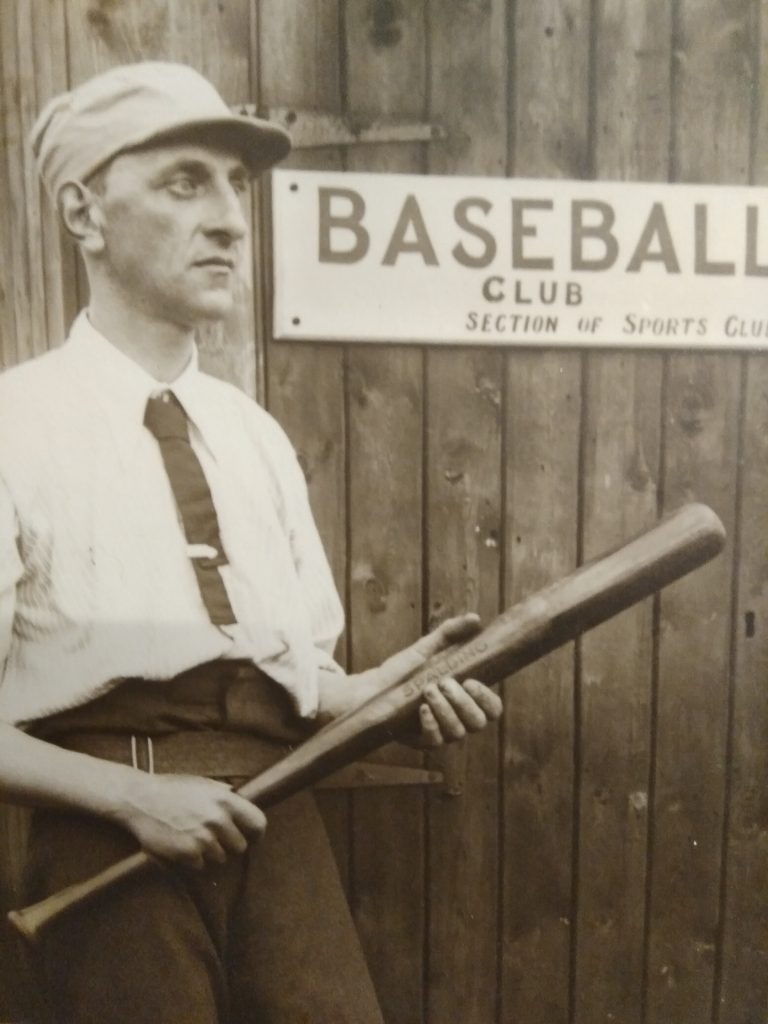
‘Father Fred Lewis’
Image by Kind Permission of The Chipping Norton Local History Museum
Fred had never visited America, but he had seen some of the great American players who had visited the UK in the late 19th century and so, as a result he put together a three page pamphlet explaining the rules of the game based on a copy of ‘Spalding’s Official Baseball Guide’, in 1909.
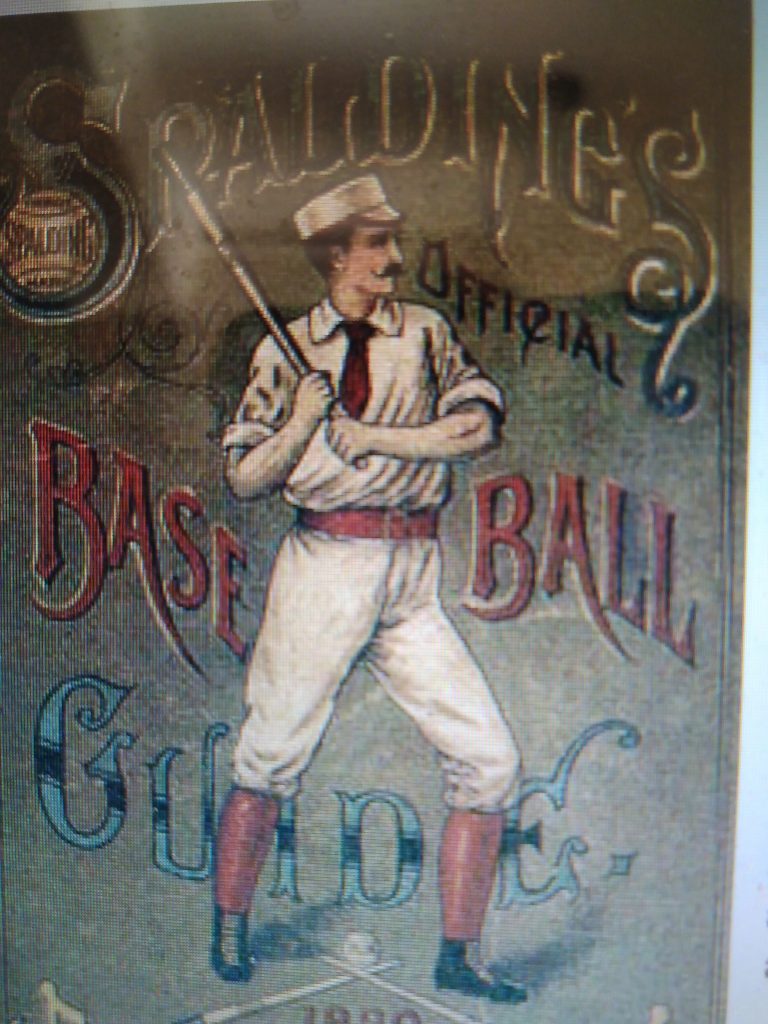
Spalding’s Official Guide
Source: Author’s Collection
American entrepreneur and ex baseball player, Albert Spalding had embarked on a world tour in 1889 (partly to promote the sport and partly to promote his sports equipment company, ‘Spaldings’, which still exists today), stopping off in Britain for a series of exhibition matches, one of which was in Birmingham and another in Bristol, so it is possible that a ten year old Fred Lewis could have attended one of these matches, which may have inspired him to introduce the game to his scouts several years later.
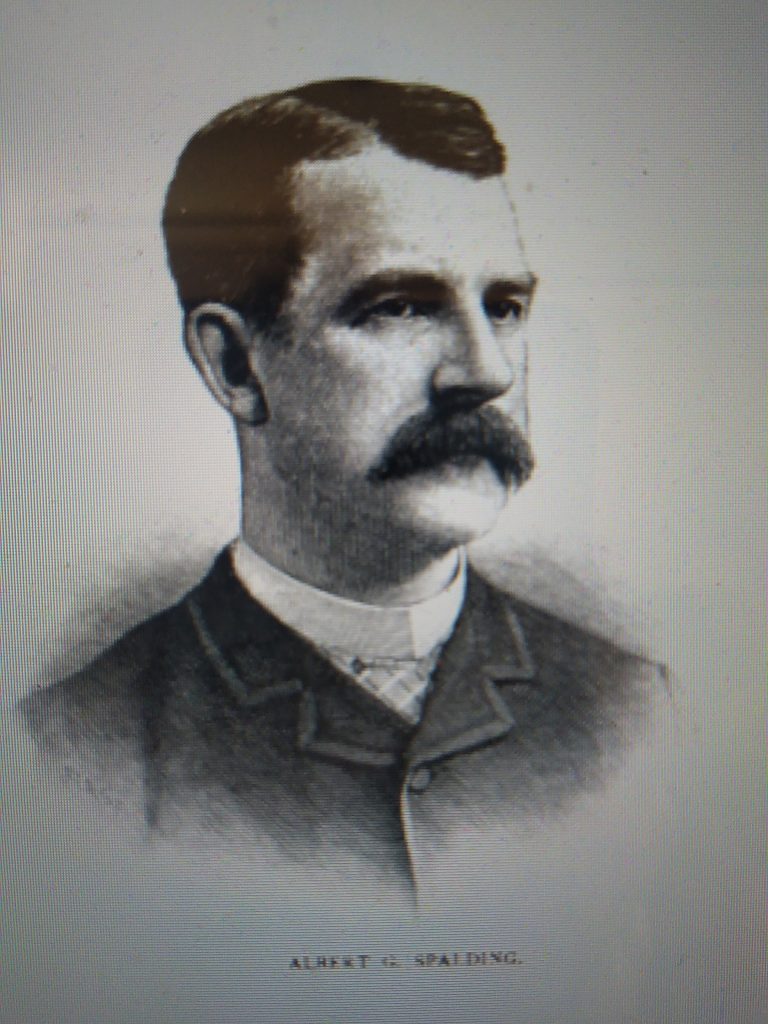
Albert Spalding
Source: Author’s Collection
There were no strict rules or full equipment to begin with, until the outbreak of World War One, but from then the popularity of the game soared in the town and surrounding area.
In 1917, the first organised competition in the village of Churchill, near Chipping Norton took place involving local scout groups, aptly competing for ‘The Spalding Cup'( still on display at The Chipping Norton Museum ). Even the war failed to deter interest in the game and members of the armed forces were known to play matches on the ‘common’, inspiring members of the town to continue to play the game.
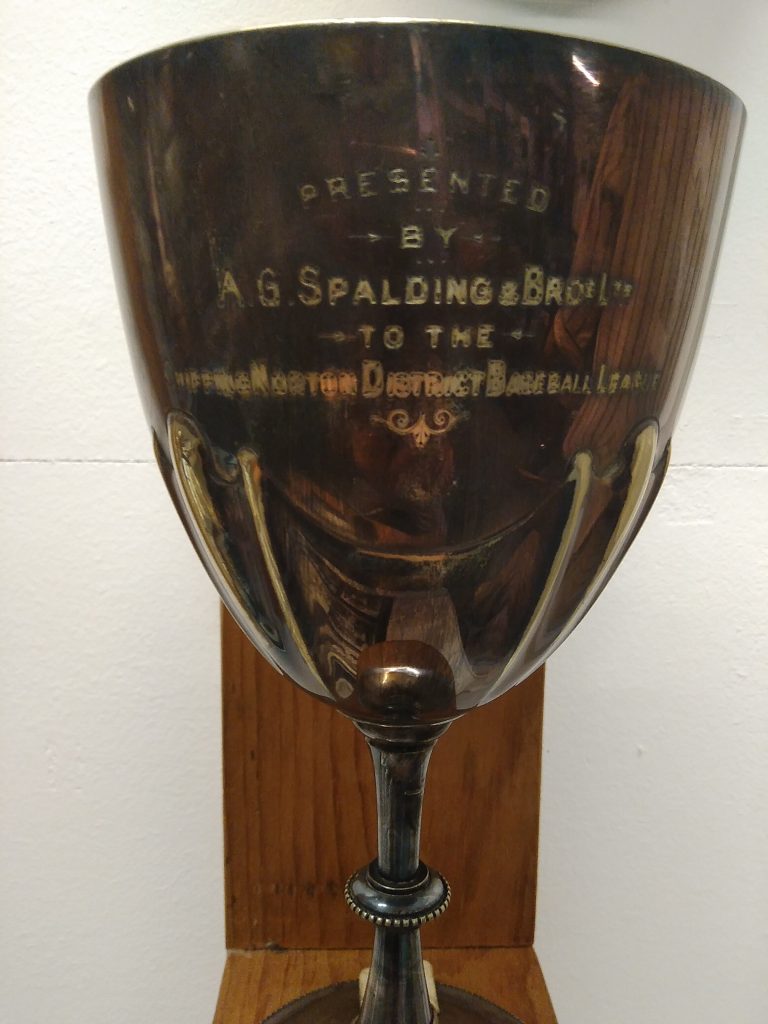
The Spalding Cup
Image by Kind Permission of The Chipping Norton Local History Museum
Chipping Norton Baseball Club was thus founded in 1920 and through his excellent work ethic and commitment, Fred Lewis developed some superb ball players and what is certain is that by the early 1920’s, a league was in place, completely independent of the established league in London and that matches between Chipping Norton and some Oxford Colleges and London clubs, were becoming a regular occurrence.
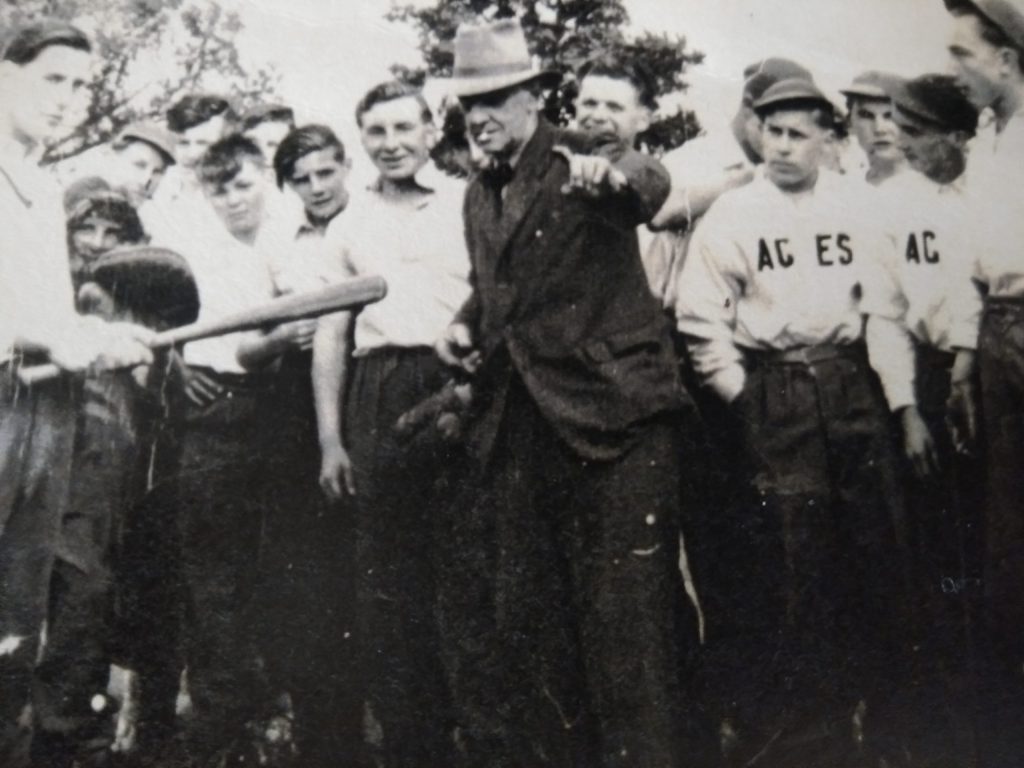
Fred Lewis coaching a Junior team
Image by Kind Permission of The Chipping Norton Local History Museum
Mainly due to the fact that baseball was almost exclusively played in London, there was an assumption made by ‘The London Baseball Association’, that organised matches were not being played outside the capital and that only ones being played were exhibitions. As a result , records were NOT kept between 1912 and 1933 and therefore, NO British/English championships’ officially’ took place during that period.
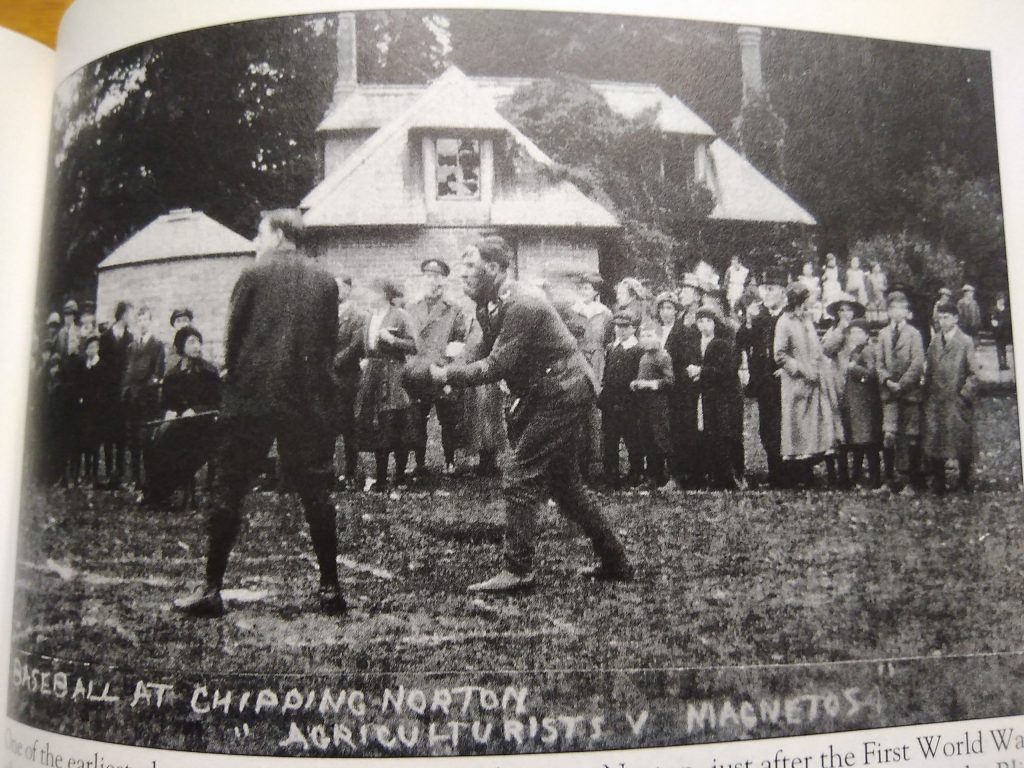
Baseball on The Common circa 1920
Image by Kind Permission of The Chipping Norton Local History Museum
There was no National Governing Body between 1912 and 1933 and therefore, argues Andrew Taylor from ‘The Folkstone Baseball Chronicle’ and one of the countries foremost authorities on the game,
There are those who do not consider the champions in this period as representative; I disagree
In 1919, a University Championship took place involving teams from the four home nations and was of a high standard, but unfortunately very little research has been undertaken regarding this and has largely been ignored. According to Taylor
‘There is even an argument to suggest that military teams from the first world war were to have a claim, as a tournament in 1918, culminated in a championship of ‘The British Isles’, which featured hundreds of teams from around the UK.
Screenshot from ‘National Champions of British Baseball ‘ website, which shows that they do not consider Chipping Norton to be champions
Source: https://www.projectcobb.org.uk/national_champions.html
In 1922, the Governing Body was The London Baseball Association which was the successor of The British Baseball Association and in 1923, the governance was taken over by The Anglo-American Baseball Association (AABA), which was run by the US and Canadian veterans from World War one. The AABA sought to spread the game and must have become aware of Chipping Norton, through Oxford University, who played regularly in the capital. So, perhaps it was rather a surprise to some that in 1926, this small provincial club was invited to Stamford Bridge, home of Chelsea Football Club, to play against an ‘All-Star’ team from London for what The Daily Mail considered to be, ‘The British Championship’
Chipping Norton duly won the match 13-12 and felt that they could justifiably call themselves, ‘Champions’.
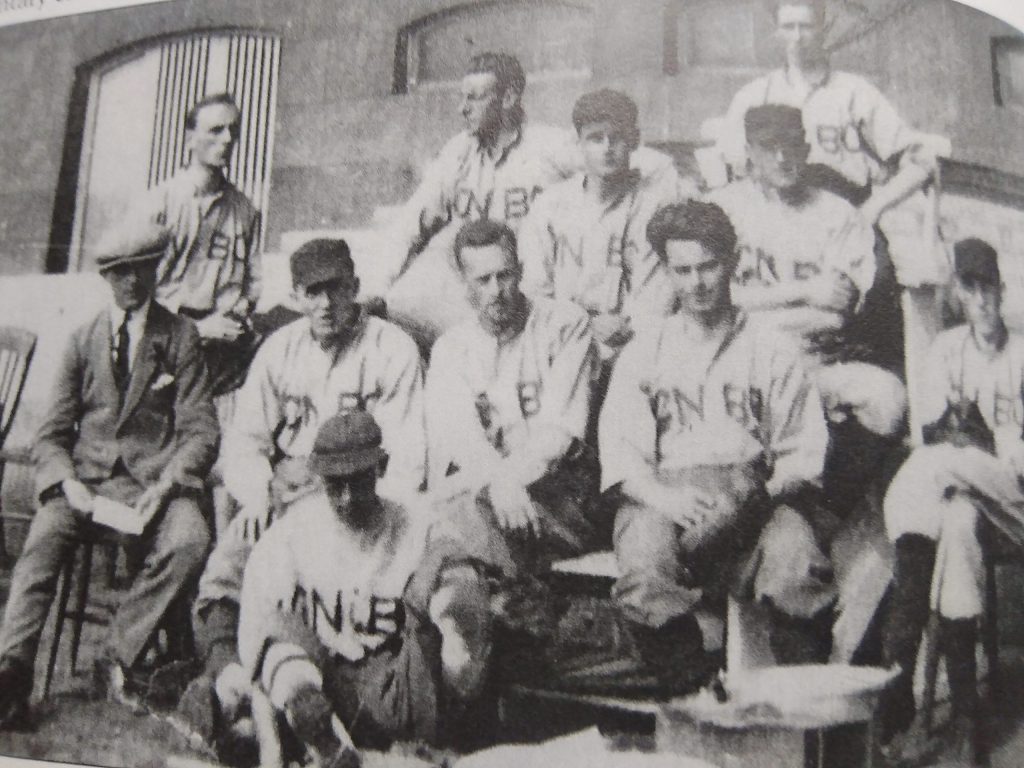
The ‘Champions’ at Stamford Bridge in 1926
Image by Kind Permission of The Chipping Norton Local History Museum
However, as mentioned due to the sporadic nature of reports, the ‘champions’ of the time are missing from the official record, which Taylor believes is a
sad indictment and also the omission of the 20’s and the perception of the military baseball as a foriegn novelty, is more a reflection of the lack of research than any meaningful assessment of its merits for consideration. It is not clear whether a league or championship took place every year and it is possible that in some years championship play was by invitation as opposed to strictly league performance’. Taylor argues that the London Champions and Chipping Norton had every right to call themselves’ Champions, as the London league was the only league in existence and therefore was as much a National championship, as the competitions played between 1906 and 1911
As a result of winning the match in 1926, Chipping Norton were scheduled to play the Welsh Champions Grange Albion in Cardiff, but again due to poor record keeping, there isn’t any evidence that this match ever took place.
Proving that this was not a ‘one off’, Chipping Norton followed up their success , by beating St Joseph’s College from North London, again at Stamford Bridge 9-5 in 1927. This was supposed to lead to a match against the French Champions in Paris, to determine the ‘Champions of Europe’, but as yet no evidence of this match taking place has been found.
However, Andrew Taylor believes
that now that we have access to online resources, such as The British Newspaper Archive, we are starting to uncover more and more fascinating stories from baseball’s history’. Taylor went on, ‘I am hoping to challenge and rewrite the record to acknowledge the champions in the 1920’s of whom Chipping Norton are worthy members.
Chipping Norton waits with bated breath!
As a postscript to this story, after the successes of the mid 1920’s, Chipping Norton Baseball club never reached those dizzy heights again, but several players from the town were chosen to play in representative games; George Withers, Charlie Withers and Roy Burford were selected for ‘The Rest of England’ team against London at the White City stadium and the junior team did play in the southern area ‘National Juvenile final’ in 1938 where they were beaten by a team called The Pioneers. The club was also invited to play in an exhibition match at The White City Stadium in London in 1948, in aid of ‘The Mayor of Hammersmith’s Olympic Hospitality Fund’, against The West London Pioneers, who were the premier team in the West London League; a huge honour for a small provincial club.
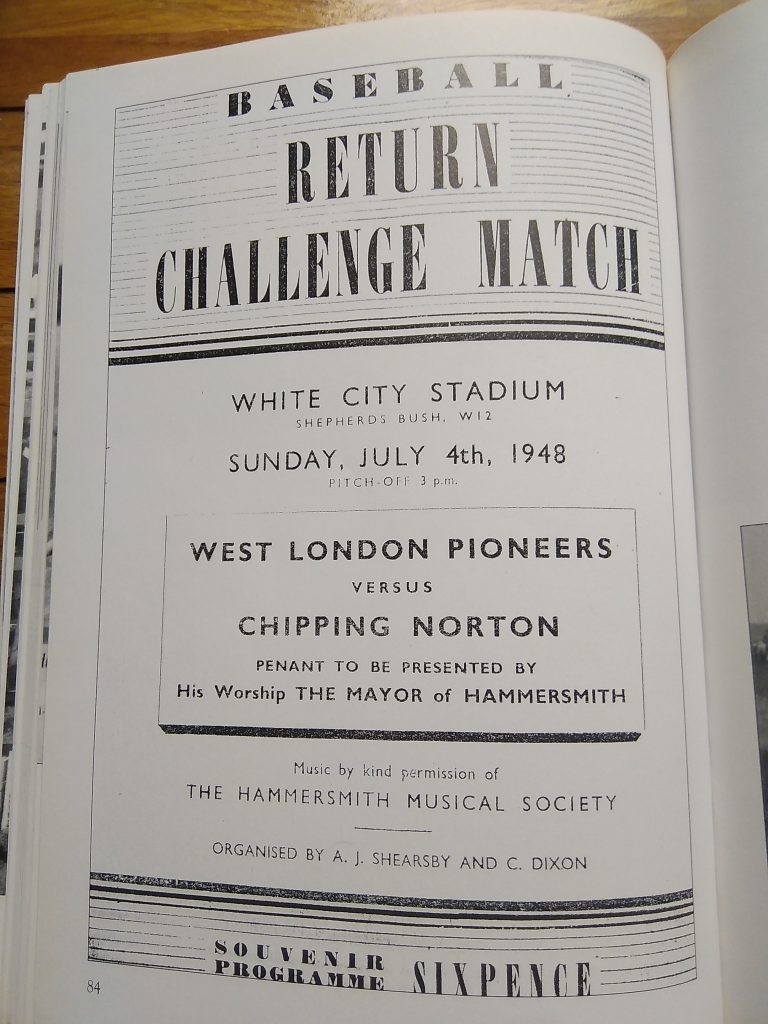
Programme from The White City Stadium in 1948
Image by Kind Permission of The Chipping Norton Local History Museum
For nearly 50 years, until his death at 81 in 1960, baseball was played continuously in Chipping Norton thanks to ‘Father Fred Lewis’, as he was known, and at one time the town put out five teams including what many believe to be the earliest example of a ‘mixed team’ in 1920, which was reported in The Daily Mirror
Mixed competitions did not appear in other parts of the country until the late 1920’s, when various theatre troupes from London’s West End, competed in the capital. Women’s participation in baseball in the UK really took off in the 1930’s, but it does appear that Chipping Norton Baseball club were the trail blazers!
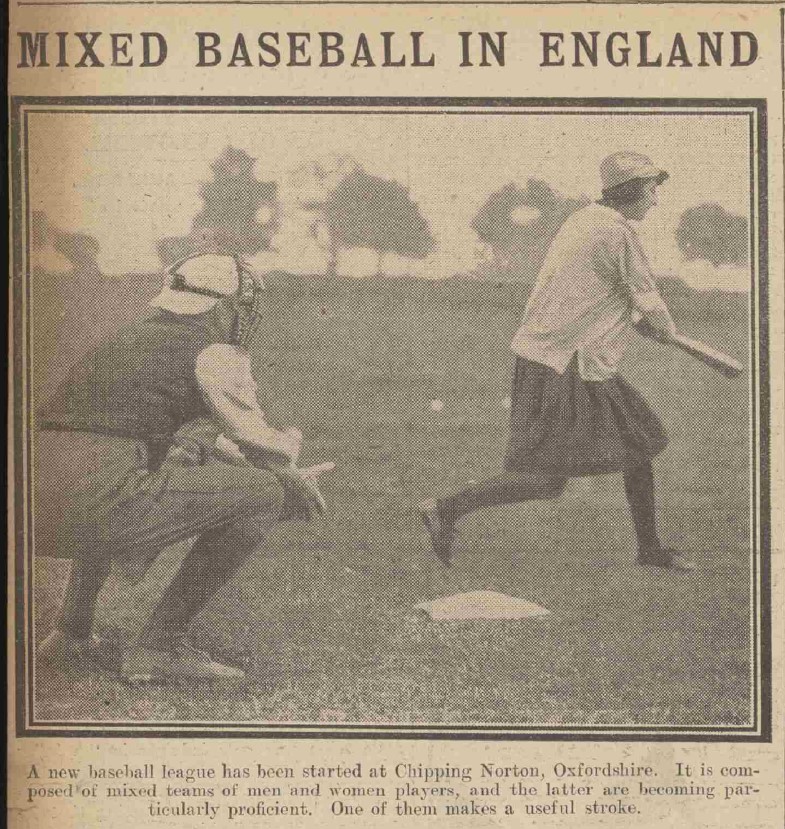
The earliest reference to a mixed Baseball team in 1920
Soure: Daily Mirror – Saturday 18 September 1920 Page 6 C/o The BNA
After the successes of the 1920’s, The Oxfordshire Weekly News reported that,
Chipping Norton is now practically as noted for baseball as it formerly was for its tweed
Note: A mill manufacturing tweed had been built in the town in 1872 by William Bliss and continued to operate until 1980.
Fred Lewis was a remarkable man in many ways because as well as his passion for baseball, he had, reported The Chipping Norton Chronicle in 1960
..a finger in practically everything that was going on in the district
Not only was he a builder, funeral director, town mayor and heating engineer, he was also remembered as ‘The Punch and Judy Man’ and the owner of a ‘bioscope’ (an early form of motion picture projector) and would often put on film shows at local fetes.
Without his leadership and influence, the club unfortunately faded away; but his legacy has been recognised in the town
So reported The Oxford Mail in 2008. Unable to renew the lease on the Banbury Road Field, due to the farm owner wanting to return it to agricultural usage and then the club losing most of their kit in a fire, the club and the league closed down in the late 1950’s.
A road has been named after him in Chipping Norton, a permanent display of baseball memorabilia is in the town museum and a plaque has been erected at his birthplace in Market Street, near the town centre. In 2010, he was rightly inducted into ‘The Baseball Hall of Fame’.
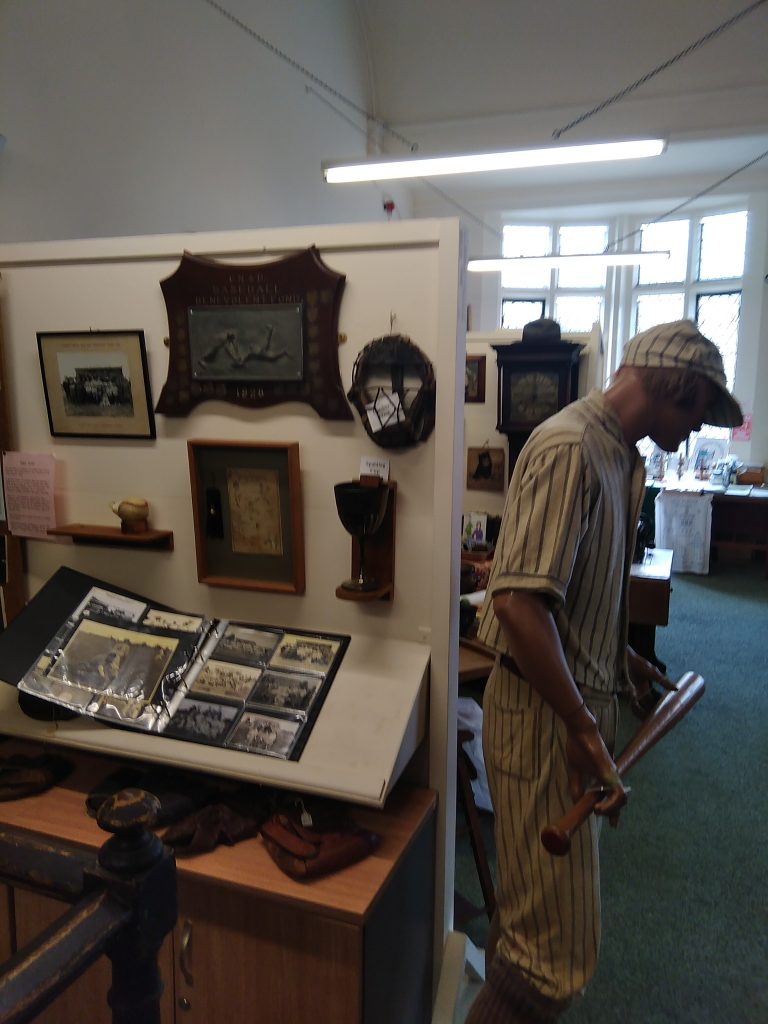
The Permanent Display at Chipping Norton Local History Museum
Image by Kind Permission of The Chipping Norton Local History Museum
A fitting tribute to a true Baseball Pioneer.
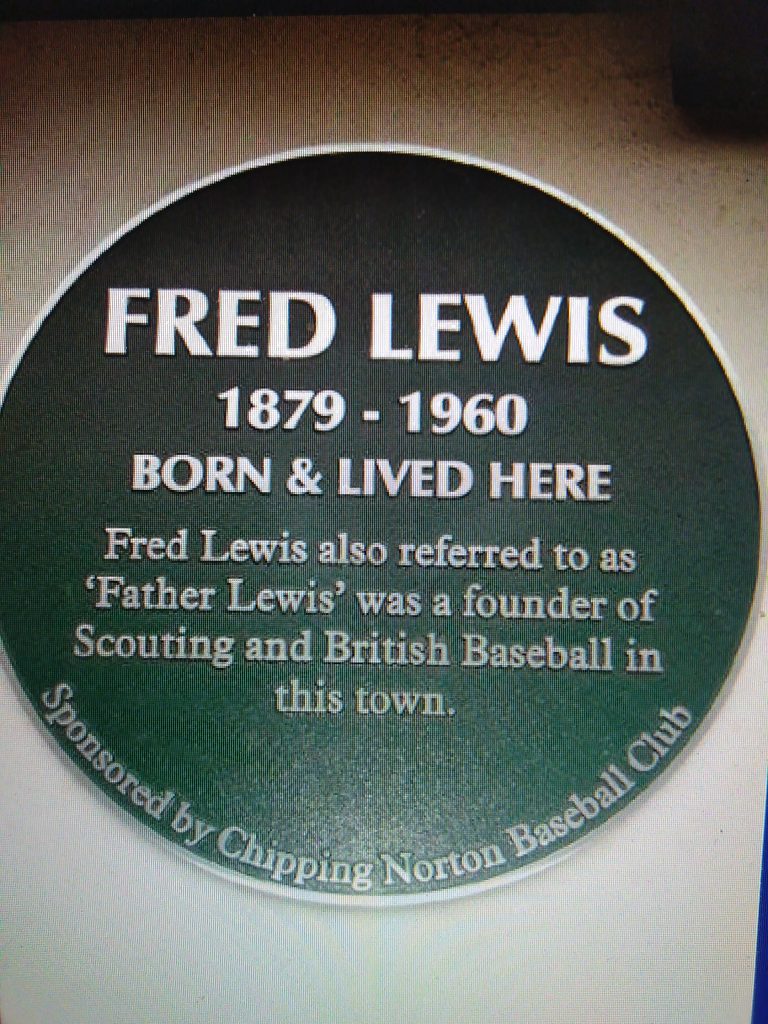
The Plaque at Fred Lewis’s birthplace in Chipping Norton
Image By Kind Permission of The Chipping Norton Local History Museum
Article of © Bill Williams

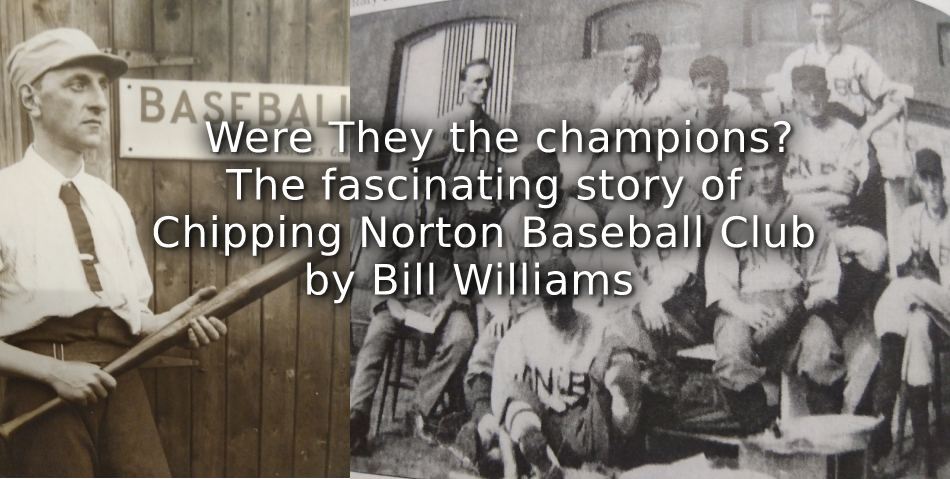
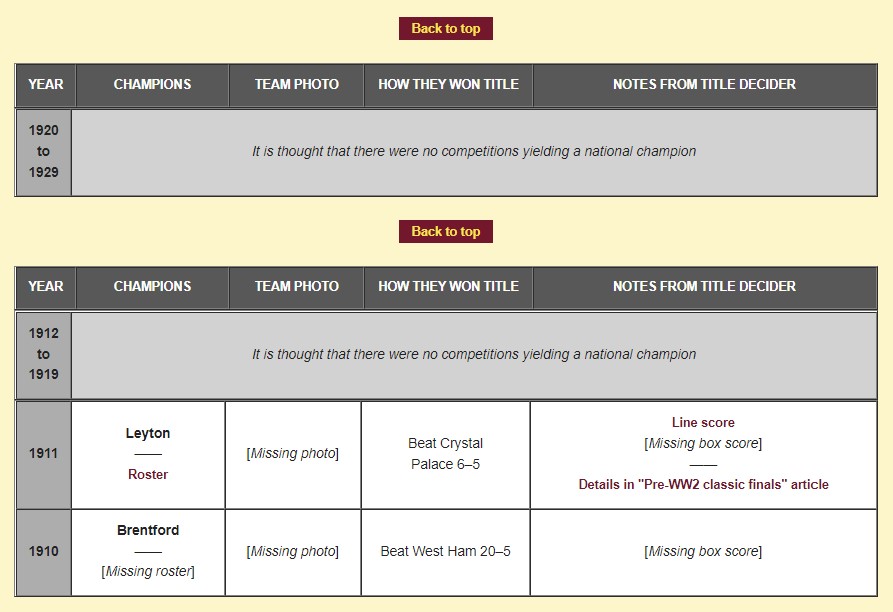
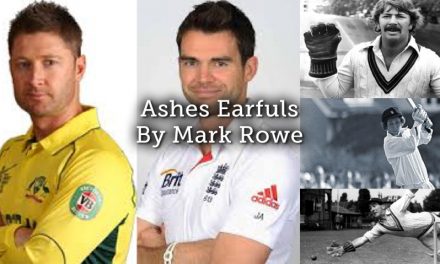
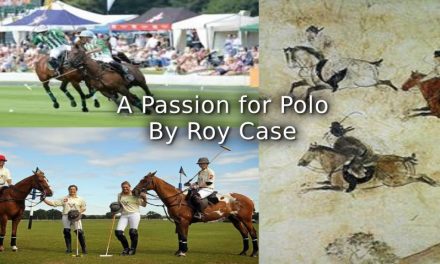
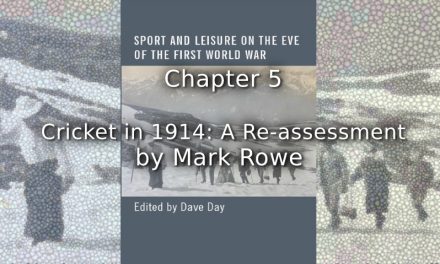
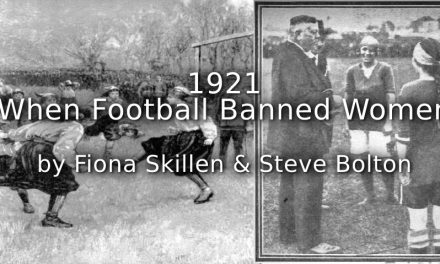
Very good article.
Promotes the sport in the UK and highlights one of the great champions of British Baseball.
I have always considered they the 1926 champions were Chipping Norton and it’s interesting to now note that possible 1927 as well.
I’m sure that Andrew Taylor will be successful in having these facts recognized and entered into official records.
What a fascinating article. I have been researching amateur footballers in the 30s and through that have only just discovered how big baseball was in the 30s. It’s got me into reseaching the progression of the two baseball codes in this country and the game’s links with football and rugby league. What a good read Bill’s article is.